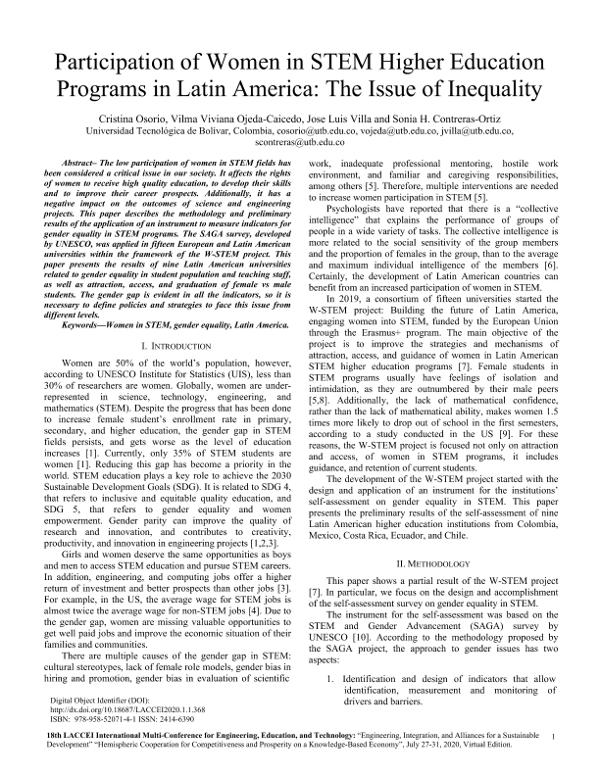Resumen
The low participation of women in STEM fields has
been considered a critical issue in our society. It affects the rights
of women to receive high quality education, to develop their skills
and to improve their career prospects. Additionally, it has a
negative impact on the outcomes of science and engineering
projects. This paper describes the methodology and preliminary
results of the application of an instrument to measure indicators for
gender equality in STEM programs. The SAGA survey, developed
by UNESCO, was applied in fifteen European and Latin American
universities within the framework of the W-STEM project. This
paper presents the results of nine Latin American universities
related to gender equality in student population and teaching staff,
as well as attraction, access, and graduation of female vs male
students. The gender gap is evident in all the indicators, so it is
necessary to define policies and strategies to face this issue from
different levels














